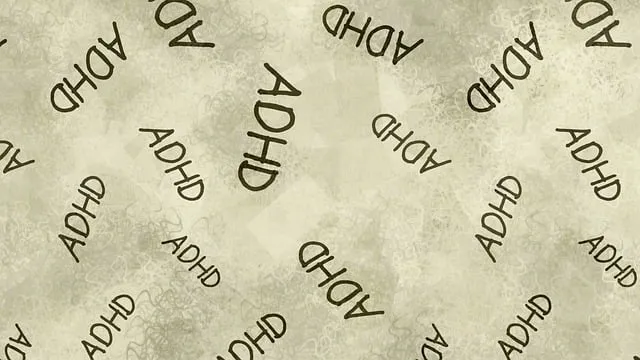In Northglenn, Kaiser provides comprehensive mental health services focused on coping skills and holistic well-being. They offer specialized programs tailored to community needs, emphasizing cultural competency. Key coping strategies include recognizing personal strengths, healthy habits, problem-solving, mindfulness, and building resilience through techniques like positive self-talk, gratitude, and compassion cultivation. These practices, integrated into daily routines via journaling and reminders, empower residents to effectively manage stress and adversity. Northglenn's Kaiser mental health services promote emotional healing and inform policy advocacy efforts.
Coping skills development is a vital component of maintaining mental well-being, especially in challenging times. Understanding these skills and accessing available resources can significantly impact our ability to navigate life’s storms. This article explores various aspects of coping, from the foundation of mental health services in Northglenn and Kaiser’s unique approach to identifying personal mechanisms and building resilience. Discover practical strategies for integrating effective coping techniques into your daily routine. Learn how Northglenn and Kaiser provide support, ensuring a healthier, more resilient you.
- Understanding Coping Skills: A Foundation for Mental Well-being
- The Role of Mental Health Services in Northglenn and Kaiser's Approach
- Identifying Personal Coping Mechanisms: A Journey Inward
- Building Resilience: Strategies for Effective Coping Skills Development
- Integrating Coping Techniques into Daily Life: Tips from the Experts
Understanding Coping Skills: A Foundation for Mental Well-being

Coping skills are a crucial foundation for maintaining mental wellness. They are the strategies we use to navigate life’s challenges and emotional healing processes, enabling us to adapt and manage stress effectively. Developing robust coping mechanisms involves recognizing personal strengths, cultivating healthy habits, and learning problem-solving techniques. This process empowers individuals to confront difficulties head-on, fostering resilience and a sense of control over their well-being.
In the context of Northglenn, where Kaiser offers mental health services, understanding coping skills becomes even more relevant. The availability of these services underscores the importance of addressing mental wellness holistically. By integrating coping strategies into daily routines, individuals can actively contribute to their emotional healing processes and, in turn, positively influence their overall mental health policy analysis and advocacy efforts.
The Role of Mental Health Services in Northglenn and Kaiser's Approach

In Northglenn, residents have access to a range of mental health services provided by healthcare providers like Kaiser. These services play a pivotal role in supporting individuals and communities through various challenges, focusing on coping skills development and resilience building. By offering specialized programs tailored to diverse needs, Kaiser aims to foster an environment where everyone can thrive.
Kaiser’s approach emphasizes not just treating symptoms but empowering individuals with effective coping strategies. This includes initiatives that address cultural competency among healthcare providers, ensuring that services are sensitive and relevant to the unique backgrounds of Northglenn’s population. Through such comprehensive programs, Kaiser facilitates holistic well-being, enabling residents to navigate life’s complexities with enhanced resilience.
Identifying Personal Coping Mechanisms: A Journey Inward

In the journey towards better mental health, identifying personal coping mechanisms is a powerful step. This introspective process involves understanding one’s unique ways of navigating life’s challenges. Northglenn residents who are seeking support can find resources at nearby Kaiser facilities, offering various mental health services to cater to diverse needs. By recognizing these innate coping strategies, individuals can harness their strengths and develop a more robust toolkit for managing stress and overcoming adversity. It’s about discovering what works best for you, whether it’s engaging in creative pursuits, spending time in nature, or practicing mindfulness techniques.
The path to self-discovery often involves exploring one’s emotional responses and learning to interpret them. This journey inward can be empowering, helping individuals challenge mental illness stigma reduction efforts while building confidence and resilience. Through this process, you may uncover hidden talents for coping with life’s pressures, enabling more effective stress management and personal growth.
Building Resilience: Strategies for Effective Coping Skills Development

Building resilience is a cornerstone of effective coping skills development, especially for individuals navigating life’s challenges in places like Northglenn where access to mental health services through organizations such as Kaiser can be invaluable. At the heart of resilience lies the ability to adapt and bounce back from adversity. Strategies to cultivate this include fostering positive self-talk, cultivating gratitude, and practicing mindfulness – techniques often explored in Stress Management Workshops offered by various organizations dedicated to mental well-being.
Beyond these, Compassion Cultivation Practices have emerged as powerful tools for enhancing emotional regulation and coping abilities. By promoting empathy and understanding towards oneself and others, these practices help individuals develop a more nuanced perspective on their experiences, reducing the impact of stress and fostering a sense of connection. Northglenn residents fortunate enough to access such services can benefit from comprehensive programs designed to empower them with the skills needed to navigate life’s complexities with greater ease.
Integrating Coping Techniques into Daily Life: Tips from the Experts

Incorporating effective coping techniques into daily life is a powerful way to enhance emotional well-being and resilience, and Northglenn’s Kaiser offers valuable resources in this regard. The first step is to identify which strategies resonate best with your personal needs. Many people find success through a combination of practices like mindfulness meditation, deep breathing exercises, and physical activity. These simple yet potent techniques can be seamlessly integrated into daily routines; for instance, taking a few minutes each morning to meditate or engaging in a brisk walk during lunch breaks to clear the mind.
Experts suggest making these practices habitual by setting reminders or designating specific times for them. Additionally, keeping a journal to reflect on and process thoughts and feelings can significantly contribute to mental health education and inner strength development. Northglenn’s Kaiser provides Mental Health Education Programs designed to equip individuals with just such tools, fostering an environment where emotional well-being promotion techniques thrive.
Coping skills development is a transformative journey towards improved mental well-being, as highlighted by Northglenn’s partnership with Kaiser. By understanding personal coping mechanisms and building resilience, individuals can navigate life’s challenges more effectively. The strategies and techniques discussed in this article provide practical tools to integrate coping skills into daily routines, fostering adaptability and enhancing overall mental health, especially through the comprehensive mental health services offered by Kaiser in Northglenn.






